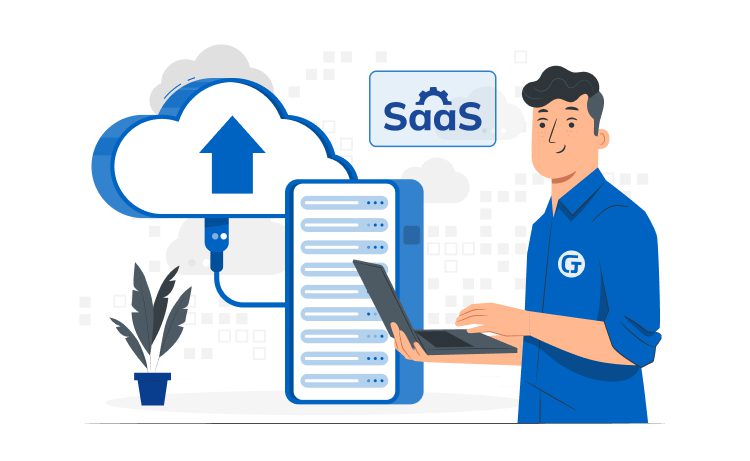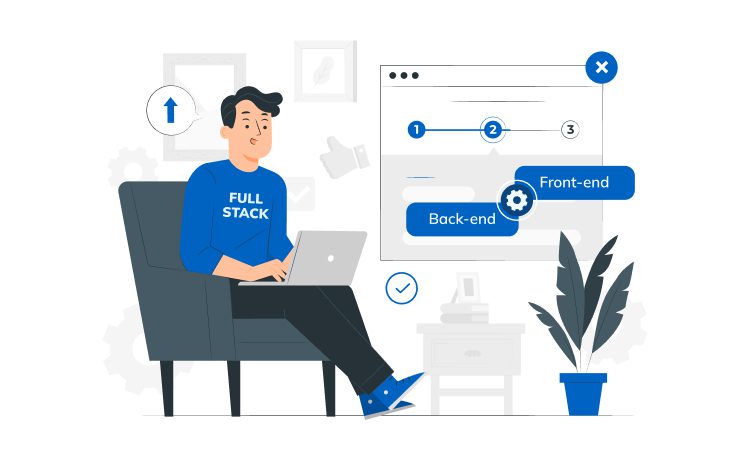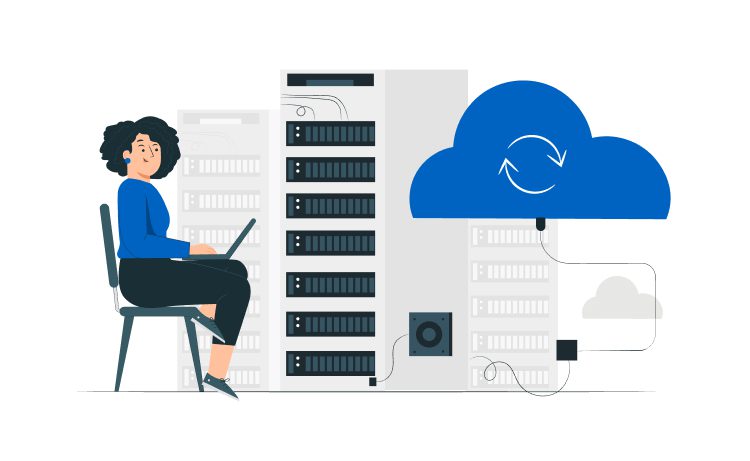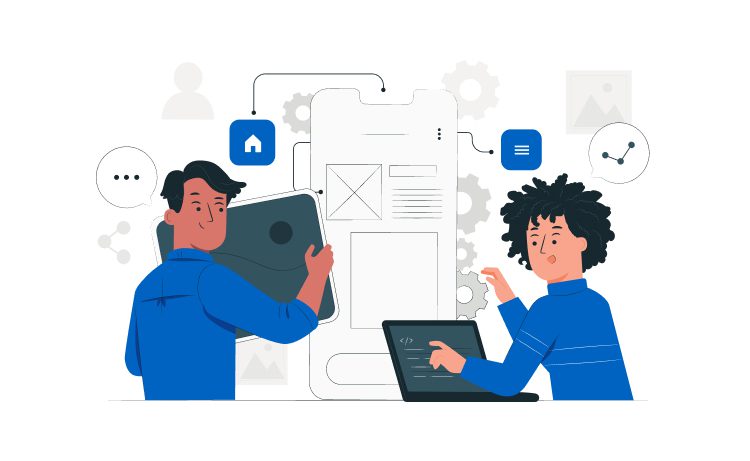
Essential Cross-Platform Mobile App Development Frameworks for Seamless Integration



Gone are the days when building applications was inessential. With 5.78 billion unique smartphone users worldwide in 2025, accounting for approximately 60% of the world’s web traffic, businesses now rely on multiple platforms to reach their customers. If you want to create an app that works on both Android and iOS devices, consider cross-platform mobile development. You can save yourself the hassle of building two separate applications while ensuring long-term resilience.
Cross-platform frameworks enable the use of a single codebase without compromising performance or scalability. The impact is measurable both in terms of cost savings and time-to-market. You can shorten the release cycle by up to 50% and reduce maintenance expenses. These gains can make for a game-changer for businesses expanding their digital ecosystems or integrating multiple internal systems.
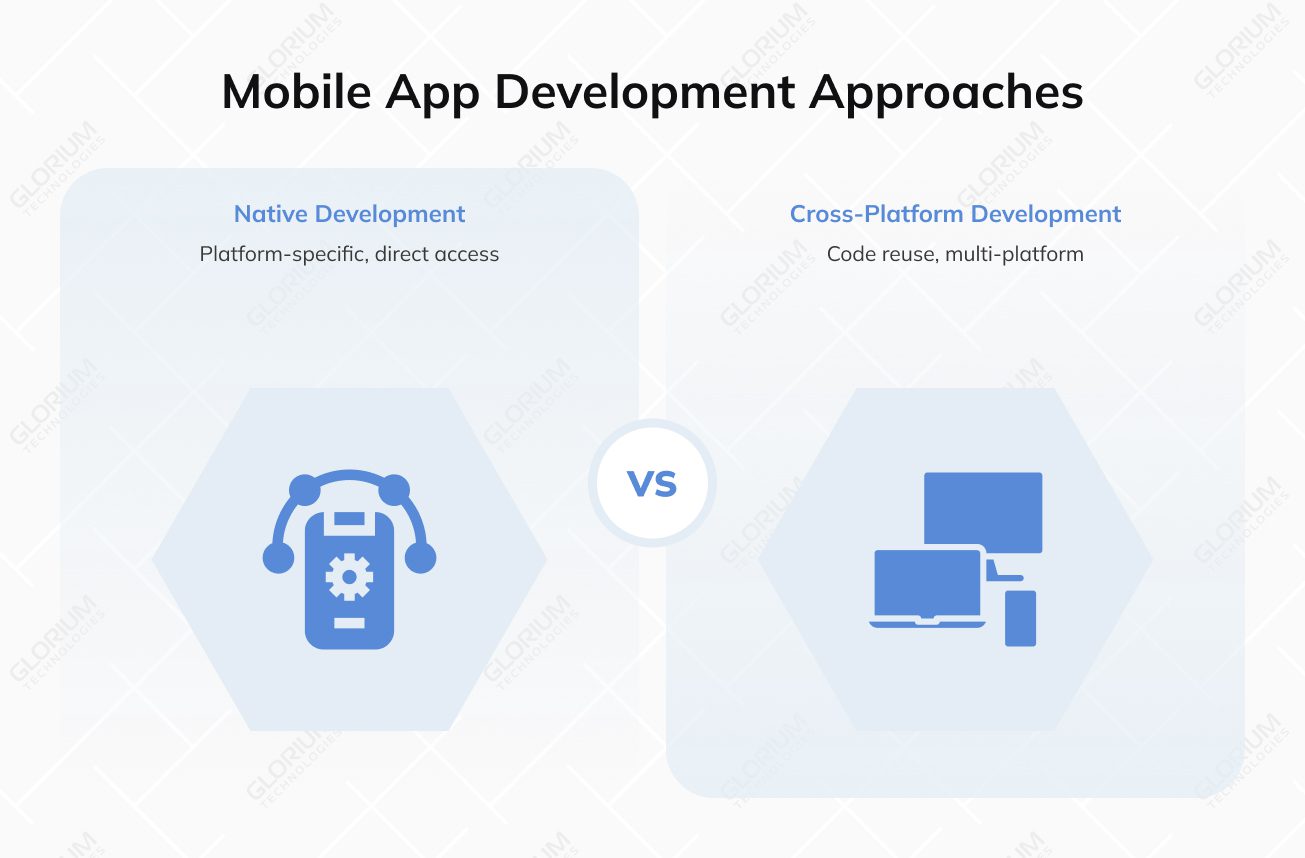
Content
Choosing between cross-platform and native development is one of the first big decisions you face in any mobile project. The approach you take will determine how fast you can deliver new features, how much effort maintenance will require, and how polished the user experience will feel. And with mobile usage now driving most customer interactions, the expectation for smooth performance and a consistent look across devices is at an all-time high.
Native app development uses platform-specific languages like Swift for iOS or Kotlin for Android, enabling direct access to device capabilities. In the United States, mobile users are almost evenly split between iOS and Android – about 57% on iOS and roughly 42% on Android. If you build only for one native platform, you automatically shrink your potential audience and miss out on users who might have been ready to download and engage with your app.
Cross-platform frameworks like Flutter, React Native, and Xamarin focus on reusing as much code as possible, making it easier to build an app once and roll it out on multiple platforms. Both native and cross-platform routes have real strengths that simply come down to how complex your project is, what systems you need to connect with, and how much you’re ready to invest.
A native iOS or Android application is your chance to tap into the platform’s full technological stack. Such platforms deliver better results in graphics-heavy or sensor-driven features, especially when complex animations are involved. If your product’s success depends on how fast and responsive it feels, that gap can quickly translate into lost conversions and lower revenue.
Suppose you are running a fitness technology company. Building apps with Swift or Kotlin, you can capitalize on native functionality and gain more accurate access to GPS and motion sensors, improving tracking precision. As a result, user complaints about inconsistent metrics may drop, and engagement may rise.
Native mobile development ensures maximum control over UI components, security features, and API interactions. So, you may consider native when building:
The same app can go live on iOS and Android once you use a shared codebase. The latter makes the entire development process much easier to manage, as you don’t have to run two separate projects. If you prioritize quick iterations and synchronized releases, this approach can work well for you.
Suppose you are building mobile apps of moderate complexity that don’t depend heavily on advanced graphics or platform-specific features. These can be booking tools, internal dashboards, eCommerce apps, you name it. In any of these cases, you’ll likely get smooth performance from frameworks such as Flutter or React Native without needing the deep system access that native development offers.
Cross-platform frameworks allow you to create apps that can run on multiple operating systems. You can speed up updates and integrations with existing services. This approach works particularly well for:
The demand for cross-platform app frameworks in the U.S. is expected to expand at a 16.7% CAGR through 2032. This growth aligns with the steady rise in smartphone adoption. More devices in people’s hands mean more opportunities for businesses to reach customers wherever they are.
You need to select a cross-platform framework with desired development speed, long-term scalability, and product quality in mind. Thus, you can reduce engineering costs and accelerate release cycles. Your choice must align with the complexity of your project and the systems you need to integrate.
There is no universally ‘best’ framework. Everything depends on the product you’re building and the performance you expect. Let’s break down the factors that can help guide your team toward the best-fit solution.
How heavy is the workload your app needs to handle? Native features – such as real-time data updates, complex animations, advanced graphics, or heavy sensor usage – can quickly expose the limitations of certain frameworks. In this case, relying solely on cross-platform tools may not be enough. You might need native modules – or a hybrid setup to maintain smooth and responsive performance.
On the other hand, simpler applications, such as booking tools, eCommerce apps, or customer portals, typically run well on fully cross-platform architectures. A cross-platform mobile development company, like Glorium Technologies, can determine the technical depth your product requires, so you can avoid slowdowns later on.
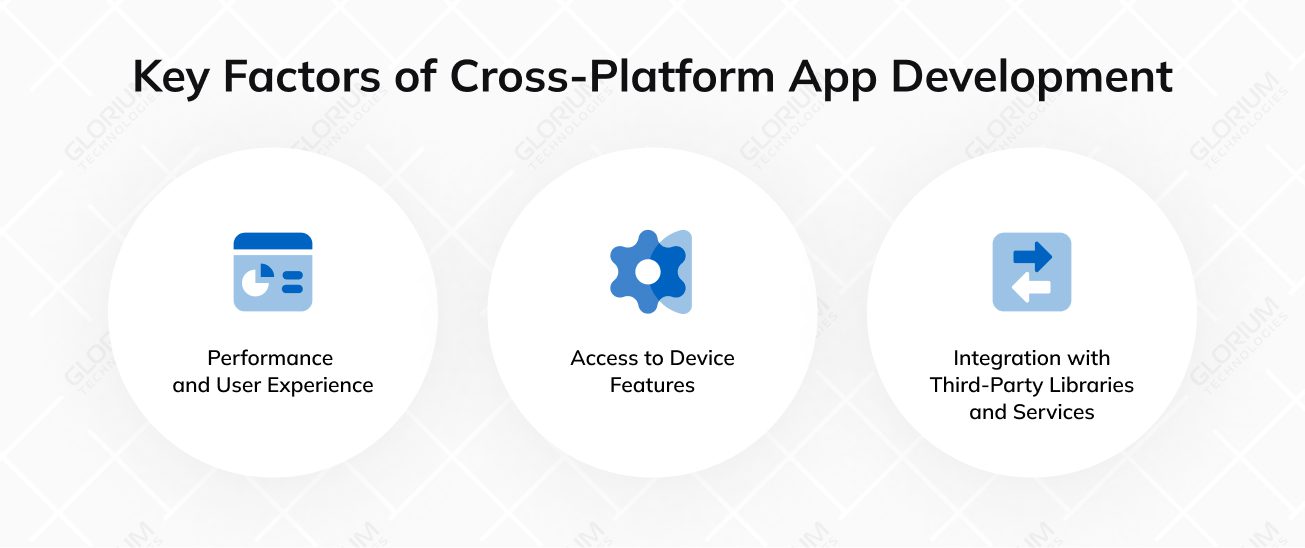
Building a cross-platform application is about what happens after your app is in users’ hands. You need to have a fairly clear picture of how often you will need to push updates, fix bugs, or roll out new features. Some frameworks make this easier thanks to active community support, steady release cycles, and ready-to-use libraries. Others may require deeper technical expertise and rework down the road.
If your app relies on native APIs, third-party services, or a more complex backend, not every framework will support those connections equally well. Some offer richer libraries and native plugins that make integrations straightforward, while others may require extra workarounds. It also helps to understand how your backend is built—whether you’re working with microservices, a monolithic system, or something in the middle. The better the framework fits your existing architecture, the easier it is to keep data flowing smoothly and avoid headaches as your app expands.
“Cross-platform middle layers, like Flutter or React, can theoretically mitigate or handle inconsistencies and quirks of the underlying operating systems (Android or iOS)”
Stefan Mischook, Mobile Development in 2025 – Native or Cross Platform?
If your goal is to deliver a consistent, native-like user experience without managing two separate codebases, cross-platform development makes that much easier. Rather than building and maintaining iOS and Android apps independently, your team can create the app once and release it everywhere. This cuts down development time, keeps updates simple, and helps you roll out the same features across all devices without extra effort. This approach is especially valuable for businesses with tight timelines or ongoing integration needs.
Instead of wasting ages on building separate apps, developers can roll out cross-platform mobile applications in 3 to 9 months. And they zero in on features that drove conversions instead of managing duplicate code while doing so.
The list of core advantages of cross-platform development includes:
The speed at which your team can deliver features and the consistency of your app across mobile devices hinge on the cross-platform framework. There are many options to choose from, each bringing its own strengths in terms of performance, flexibility, and ecosystem support. Before deciding which one fits your project, explore the leading frameworks and their real-world use.
React Native is a free, open-source framework developed by Facebook for building native applications on iOS and Android platforms using JavaScript and React. It has quickly become one of the leading tools for cross-platform mobile development. React Native allows developers to use their existing JavaScript and React knowledge to create mobile apps, making it an easy transition for web developers.
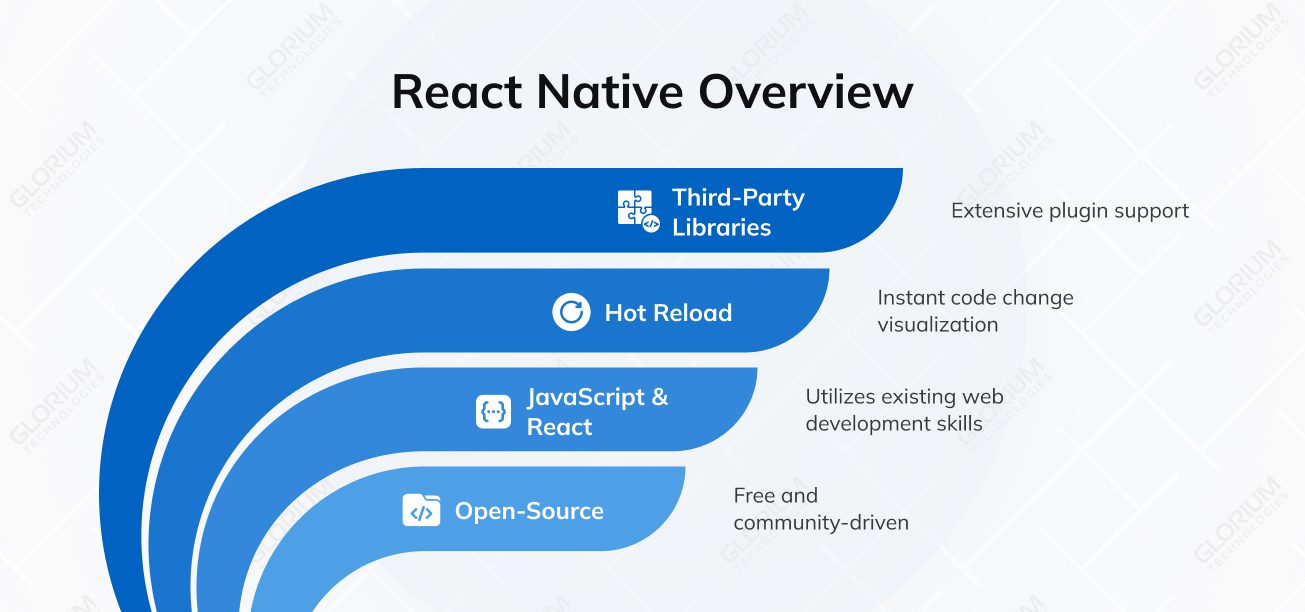
One of React Native’s standout features is hot reload, which enables developers to see code changes instantly, speeding up the development process. Additionally, it supports numerous third-party libraries and plugins, providing the flexibility to add various features and functionalities to mobile applications effortlessly.
Explore the React Native solutions we’ve delivered for clients.
Flutter, developed by Google, is an open-source framework designed for creating natively compiled applications for mobile, web, and desktop from a single codebase. It uses the Dart programming language and provides a rich set of pre-designed widgets, allowing for a seamless and customizable user interface.
Flutter’s key advantage is its “hot reload” feature, similar to React Native, which lets developers see the effects of their code changes immediately. Additionally, Flutter’s single codebase approach simplifies maintenance and reduces development time, making it an efficient choice for building high-performance, cross-platform applications.
Examples of apps built utilizing the features offered by Flutter are plentiful – eBay, BMW app, and New York Times, among others, have been created thanks to its performance that rivals those achieved when coding in a platform’s native environment, all while reducing time developing across platforms alike considerably.
Hire Flutter developers to create cross-platform apps for your business.
.NET MAUI, which evolved from Xamarin, is a Microsoft-developed framework for creating native and cross-platform applications using C# and the .NET ecosystem. It allows developers to share a significant portion of their code across iOS, Android, macOS, and Windows, leading to faster development cycles. Leading companies like Oro MRW, The World Bank, Storyo, and Captio have leveraged this powerful technology.
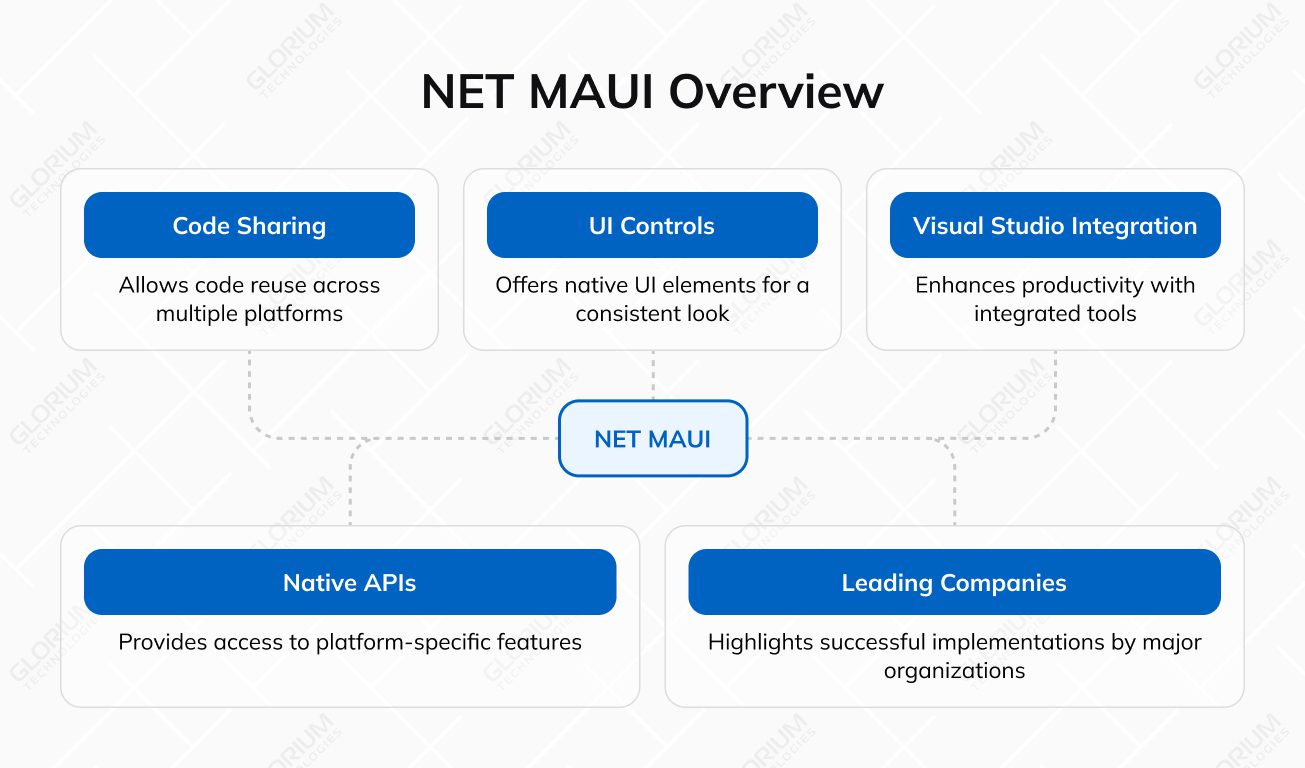
The framework provides access to native APIs and UI controls, ensuring that apps built with .NET MAUI deliver a truly native experience. It also integrates seamlessly with Visual Studio, offering robust tools for building, debugging, and testing applications, which enhances developer productivity and code quality.
If you want to see the same results for your business, hire our Xamarin developers.
Ionic is an open-source framework for high-quality cross-platform app development using web technologies like HTML, CSS, and JavaScript. It relies on the Angular framework and Apache Cordova, enabling developers to create apps that run on multiple platforms from a single codebase (both on Android and iOS).
Ionic’s main strength lies in its extensive library of pre-built UI components and plugins, which simplify adding functionalities such as camera access, GPS, and more. The framework also supports modern front-end development practices and tools, making it a popular choice for developers familiar with web technologies.
Apache Cordova is an open-source mobile development framework that enables developers to create cross-platform apps using HTML, CSS, and JavaScript. It wraps web applications in a native container, allowing them to access device features like the camera, accelerometer, and GPS through a unified API.
Cordova is particularly useful for developers who want to leverage their existing web development skills to build mobile apps. It supports a wide range of plugins and has a large community, which provides ample resources and support. While it may not offer the same level of performance as native frameworks, Cordova remains a practical solution for simpler, content-focused mobile applications.
Artificial intelligence is no longer a nice-to-try. AI adoption has climbed to 97.5% among development companies this year. You can now use AI-driven tools to automate repetitive tasks, generate cleaner code, and even predict performance issues before they become visible to users. QA teams don’t need to burn the midnight oil anymore to detect bugs; automated testing models get the job done in a jiffy.
By integrating AI, businesses can build more reliable mobile and web apps, release updates faster, and scale efficiently without growing the engineering team at the same rate. The result is a smoother, smarter development lifecycle.
How AI supports cross-platform development:
Cross-platform development is your opportunity to create apps that reach users across multiple platforms. Choose from frameworks like React Native, Flutter, Xamarin, and Ionic to work from a shared codebase while still delivering polished, reliable experiences across iOS and Android. Getting the right option, optimizing device-specific features, and planning for future growth ensures your mobile and desktop apps feel natural on every device.
Glorium Technologies is here to help you build both complex and simple apps that look sharp, perform smoothly, and stay easy to maintain as they evolve. Contact us today to turn your idea into a product that stands out in every app store.
Even though these services are related, they are not identical. Cross-platform development uses a shared codebase to build iOS apps and Android apps with near-native performance, often relying on native components to deliver a smooth experience on different platforms. Hybrid development provides limited access to device-specific features. Both approaches reduce duplication of app logic, but they serve different technical and product needs.
It can help your app look and behave in the same wow-awakening way across various platforms by standardizing layouts, components, and key features. Instead of rebuilding the same interface for native Android or iOS, you work with managed source code that keeps your business logic and app logic aligned. This makes updates easier and ensures users get a familiar experience, no matter which device they use.
Some app features work best when they use the device’s capabilities directly. Tools like Google Maps, advanced camera functions, biometric security, or real-time sensors often perform better through native components (or native code). If you’re building something that needs high accuracy, low latency, or deeper control – especially when you target Android or iOS separately – such solutions may require native-level access rather than a purely cross-platform approach.
Our team supports every stage of development—from the architecture and core logic to the final UI—so your app runs smoothly across platforms and remains simple to maintain. We’ve built products that tap into native device capabilities without compromise and scale confidently as businesses grow.
This approach is reinforced by industry recognition that reflects our track record. We’ve been featured in the Inc. 5000, Clutch Top 1000, and IAOP Global Outsourcing 100. With more than 150 delivered products, over 80 awards, and a 99% client satisfaction rate, we bring dependable expertise to every project.
You need to decide how it will perform across different mobile operating systems and whether your team can support consistent updates. Home in on emerging technologies to future-proof your mobile solutions, from smarter analytics to automated testing. If monetization matters, make sure the app can integrate tools like Google Ads seamlessly. Balancing function, performance, and long-term scalability will set your app up for success.

